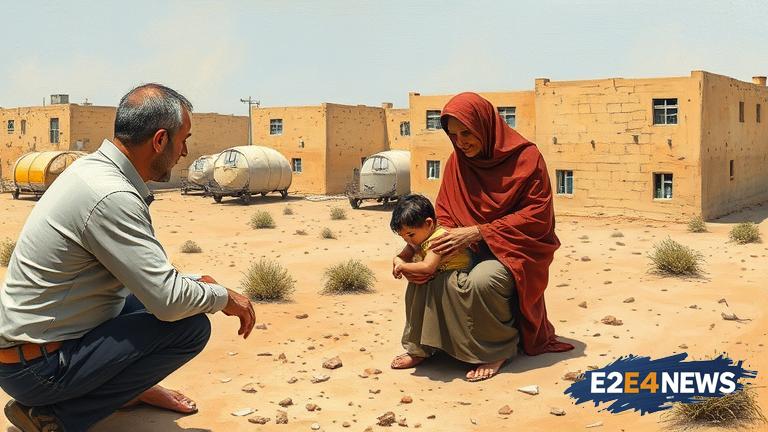In a decision that has drawn widespread criticism, an Israeli court has found a settler not guilty of assaulting Bedouin women and a toddler in the West Bank. The incident in question occurred in a region that has been a focal point of tension between Israeli settlers and the indigenous Bedouin population. The court’s ruling has been met with outrage from human rights groups and advocates for the Bedouin community, who argue that the decision perpetuates a culture of impunity for settlers who commit violent acts against Palestinians. The case highlights the complex and often fraught relationship between Israeli settlers and the Bedouin population in the West Bank, where issues of land ownership, resource allocation, and political power are deeply contested. The Bedouin community has long faced challenges related to displacement, marginalization, and discrimination, with many living in unrecognized villages without access to basic services like electricity, water, and healthcare. The Israeli government has been criticized for its policies towards the Bedouin, including the demolition of homes and the forced relocation of communities. The court’s decision has also raised questions about the fairness and impartiality of the Israeli justice system, particularly in cases involving settlers and Palestinians. Many have pointed out that the ruling is part of a broader pattern of leniency towards settlers who commit crimes against Palestinians, while Palestinians are often subject to harsher treatment and longer sentences for similar offenses. The incident has sparked renewed calls for greater accountability and protections for the Bedouin community, as well as an end to the occupation and the establishment of a sovereign Palestinian state. The international community has also been urged to take a stronger stance against Israeli settlement expansion and human rights abuses in the West Bank. As the situation continues to unfold, it remains to be seen how the Israeli government and the international community will respond to the court’s decision and the ongoing tensions in the region. The Bedouin community and their allies are likely to continue pushing for justice and equality, while the Israeli government faces growing pressure to address the systemic issues that underpin the conflict. In the meantime, the court’s ruling serves as a stark reminder of the deep-seated inequalities and injustices that persist in the West Bank, and the need for a comprehensive and lasting solution to the Israeli-Palestinian conflict. The case has also highlighted the importance of independent media and human rights monitoring in the region, as well as the need for greater awareness and activism among the international community. Furthermore, the incident has underscored the complexities of the Israeli-Palestinian conflict, which involves not only political and territorial disputes but also deeper issues of identity, culture, and historical narrative. As such, any lasting resolution will require a nuanced and multifaceted approach that takes into account the needs, rights, and dignity of all parties involved. Ultimately, the court’s decision is a setback for justice and equality in the region, but it also serves as a catalyst for renewed activism and advocacy on behalf of the Bedouin community and other marginalized groups. The international community must continue to push for accountability, transparency, and human rights protections in the West Bank, even as the Israeli government faces growing pressure to address the systemic issues that underpin the conflict. In conclusion, the court’s ruling is a disturbing reminder of the ongoing struggles and injustices faced by the Bedouin community in the West Bank, and the need for sustained activism and advocacy to bring about a more just and equitable future for all.
